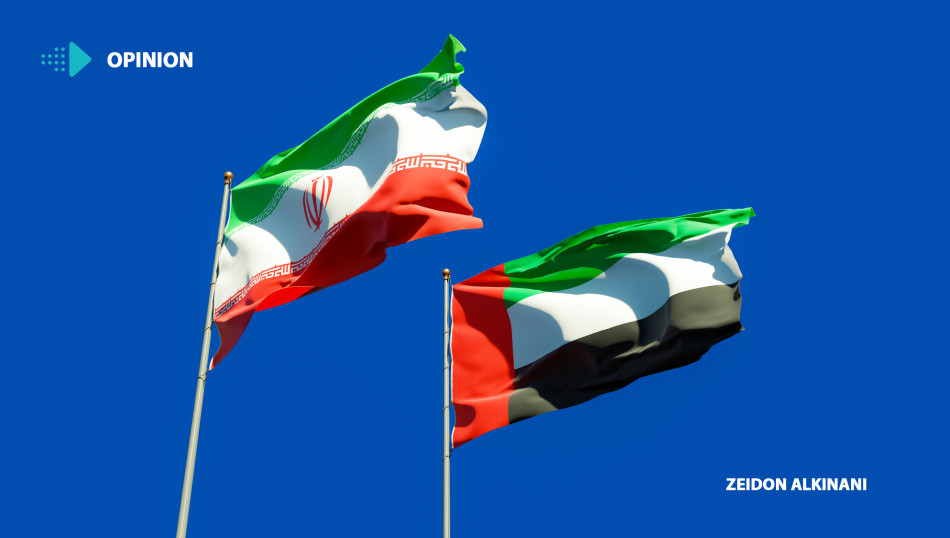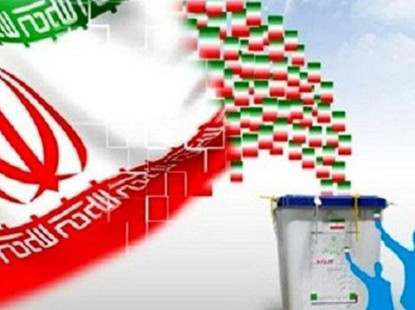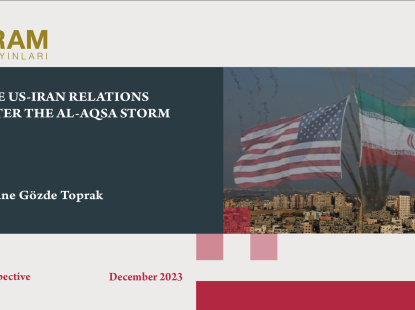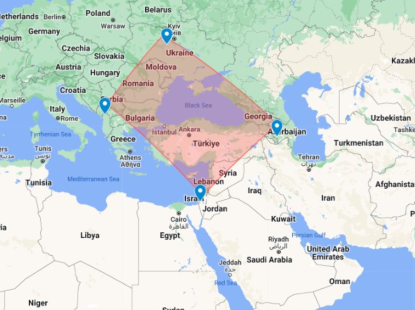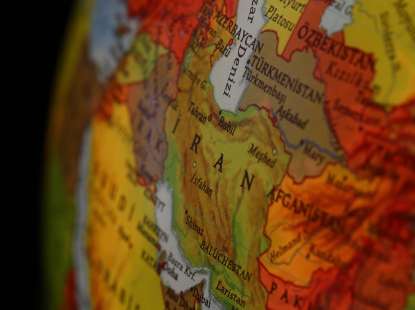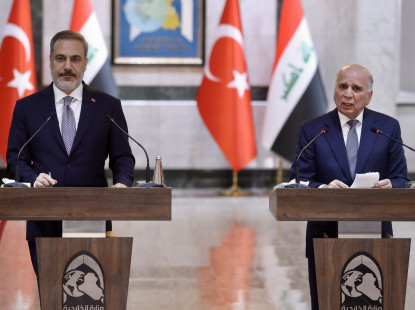Recent Middle East Reconciliations: Transient De-escalation or New Frameworks?
The motives behind the developed UAE-Iran and Turkish-Saudi relations remain to be unclear in a region recently witnessing unusual spaces such as this year’s Baghdad Conference and Al-Ula summit, or even distant development such as a new US administration decreasing its military footprint. The rare moment behind the recent events in the diplomatically fragile region derives out the major shift witnessed through the direct communication emerging out of regional foes, such as the exchange of communication between Riyadh and Ankara in August 2021 and the visit of an Emirati official to Tehran in December 2021.
Pre-2021 the Middle East regional partnerships were mainly divided between Saudi-led alliance with the UAE, Bahrain, and Egypt against the Türkiye-Qatar alliance, when the former boycotted and sanctioned Doha in June 2017. Qatar’s already existing relations with Türkiye improved and new strategic relations with Iran were created amidst increasing hostility from the Saudi-led blockade. Moreover, and allegedly in an attempt to create a more effective anti-Iran alliance, the UAE and Bahrain signed the Abraham Accords in a normalization move with Israel in August 2020.
Post-2021 Middle East regional alliances witnessed major development when the blockade against Qatar lifted in January 2021 following months of negotiations. Saudi Arabia’s Al-Ula summit is where the GCC leaders officially met for the first time since the end of the blockade. Minor intra-rivalries and disagreements between Riyadh and Abu Dhabi also allegedly presented more harmony towards alliance Qatar and Türkiye, yet separately rather than collectively – growing differences between Abu Dhabi and Riyadh over the Yemen war presented new opportunities for warmer Saudi-Qatari relations (which played a role in better relations with Türkiye) and UAE-Iran relations.
“The Gulf states have realized that the marginal gains for conflict are diminishing. Especially in light of the evolving role of the US and the economic setbacks caused by the COVID-19 pandemic,” according to Dr. Dania Thafer, Director of the Washington-based Gulf International Forum in an exclusive comment to İRAM.
Dr. Ali Bakir, a research assistant professor at Qatar University and an expert on Türkiye-Gulf relations, further elaborates on the recent reconciliatory atmosphere as a “de-escalation period,” and that reaching out to all other players seem the right thing to do politically, economically, and security-wise”. However, Dr. Bakir questions the sustainability of these new arrangements.
“Uncertainties surrounding the changing global and regional geopolitical dynamics, including the US lessening its commitments due to its increasing focus on China and Russia, geoeconomics and energy geopolitics, the health pandemic and the overall fatigue of antagonism and conflicts have all coalesced to bring in a new reality of pragmatism and reconciliation,” İRAM quoted Dr. Abdullah Baabood, a Gulf-specialized Omani academic, former director of the Gulf Research Centre at the University of Cambridge.
Saudi-Turkish Rapprochement
Saudi-Turkish improved relations also parallel a wider Ankara openness with Abu Dhabi and Cairo. In late August, UAE’s de facto ruler Mohammed bin Zayed (MBZ) and Türkiye’s President Recep Tayyip Erdogan communicated over the phone, following a visit by the UAE National Security Adviser Sheikh Tahnoun bin Zayed to Ankara on August 18. For many years, the UAE competed with its GCC peers over becoming Türkiye’s main Gulf trade partner. Despite regular political disturbances to the UAE-Türkiye economic relationship, both seemed very keen to maintain the beneficial partnerships until the Saudi-led blockade against Qatar took place in June 2017, and Ankara and the alliance X witnessed a major U-turn. In a post-COVID-19 world, it only makes sense for Ankara to welcome more trade and investment with the UAE – a country that is aiming to diversify its non-oil-based economy.
Similarly, to the Ankara-Abu Dhabi recent developing relations, the main motive behind the de-escalation mechanism between Ankara and Riyadh was also allegedly economically oriented. The Arab Spring uprisings played a major role in weakening the Saudi-Turkish relations as we witnessed; clashing opinions over Egypt in terms of supporting the Muslim Brotherhood or the Egyptian Army, clash of coordination efforts in Syria, and most recently, the Qatar blockade.
However, it also made sense for Riyadh to develop better relations with Ankara in consideration of Saudi Arabia’s foreign policy being increasingly dominated by curbing Iranian influence, which increasingly reflects the latter’s significance in Iraq, Syria, Lebanon, and neighboring Yemen – and the realization of a non-reliant US ally to protect Riyadh in a direct confrontation against Iran is almost out of the calculations. The lack of a US response to the Iranian-made missiles towards Saudi Arabia or the sudden US military withdrawal from Afghanistan also motivated Washington’s Arab allies to reconsider their regional relationships.
The already fragile Ankara-Riyadh relations during the blockade against Qatar witnessed its lowest turning point when journalist Jamal Khashoggi was killed in the Saudi Consulate in Istanbul – a move that also outraged the international community. The end of the blockade, however, presented a more effective mediating role for Qatar between Ankara and Riyadh, at a time when the latter noticed the increasing irrelevance of the Muslim Brotherhood to current Arab politics.
Iran-UAE Rapprochement
For similar motives pushing the Ankara-Riyadh reconciliation, the UAE-Iran relations also significantly developed. For instance, the US absence in confronting any missile attacks on Saudi Arabia from what is perceived to be connected to Iran was also a major turning point in UAE’s consideration of its dependency on US military support.
The Emirates Policy Center defines the UAE’s new approach to its former rivals in Ankara and Tehran as a result of Washington’s reduced military footprint in the region and the rising economic challenges posed by the COVID-19 pandemic.
UAE’s willingness to enhance relations with Iran comes as part of a wider reconciliatory approach towards the rest of the region, including Qatar and Türkiye – following years of confrontational attitudes. Kristian Ulrichsen, an Associate Fellow with the Middle East North Africa Programme at Chatham House, describes UAE’s recent policy change as being influenced by “the COVID-19 pandemic and the curbing of an era of raw power politics with Donald Trump’s ousting from office”.
Dr. Thafer tells İRAM how the Iran-UAE talks are driven by the Gulf region’s move from confrontation to reconciliation by listing the emphasizing on how “Sheikh Tahnoun’s visit is part of this overall trend,” and that it “falls in the backdrop of JCPOA negotiation along with the several rounds of talks between Saudi Arabia and Iran”. Dr. Thafer also recalls how Iranian President Ebrahim Raisi stated during his June election that “a pillar of his policy will be improving relations with the Arab Gulf States”.
Moreover, there are other considerations from the UAE’s perspective, such as “protecting itself against any possible Iranian reactions that might result from an escalation with Tehran, preparing for the outcomes of the US-Iran negotiations on the fate of the JCPOA, balancing between the different players (Iran-Saudi Arabia- Israel, and Türkiye),” İRAM is told by Dr. Bakir.
The UAE also enjoys significant commercial and business partnerships through the movements of goods and people with Iran – which equally affects both countries’ economies in the face of drastic political events such as the US economic sanctions on the Islamic Republic. Despite Iran’s annexation of the Strait of Hormuz islands since 1971, the UAE does not view Iran as a threat to its internal sectarian relations as Saudi Arabia and Bahrain do. Moreover, the prominent role of an Iranian business elite in the Emirate of Dubai and a large number of Iranian tourist visitors to it played a vital role in pushing Emirati foreign policy to enhance relations with the Islamic Republic.
“Both the UAE and Iran need each other,” İRAM quoted Dr. Baabood, who also continues to add that while UAE wants to ensure no consequences affects its trade and maritime security, Iran views UAE as its main gateway under sanctions, “Shifting global and regional geopolitics is also a consideration, and the UAE is playing a hedging game to prepare for any eventuality”.
One interesting dynamic to also consider here is the UAE’s current move to maintain its policies of rapprochement with both Iran and Israel. Bakir told İRAM that it is not impossible if the UAE “at any point in the future brought the Iranians and Israelis together for backdoor diplomacy”. Baabood reflects upon this point by adding, “the hedging strategy within the new UAE foreign policy approach involves talking to adversaries and other countries that are at odds with each other. This represents a challenge, but a manageable one and the UAE has been able to do so, at least so far”.
In conclusion, the re-shift in regional alliances are not necessarily long-term changes in the ideological elements of the regional power players’ foreign policies, rather than convenient or arguably realistic acts to balance with the overarching destinies influencing the future of the region’s economic and geopolitical security as a result from the US military withdrawal and the post-COVID-19 economic turbulence.
- Tags:
- Iran
- Saudi Arabia
- Türkiye
- UAE
- USA
